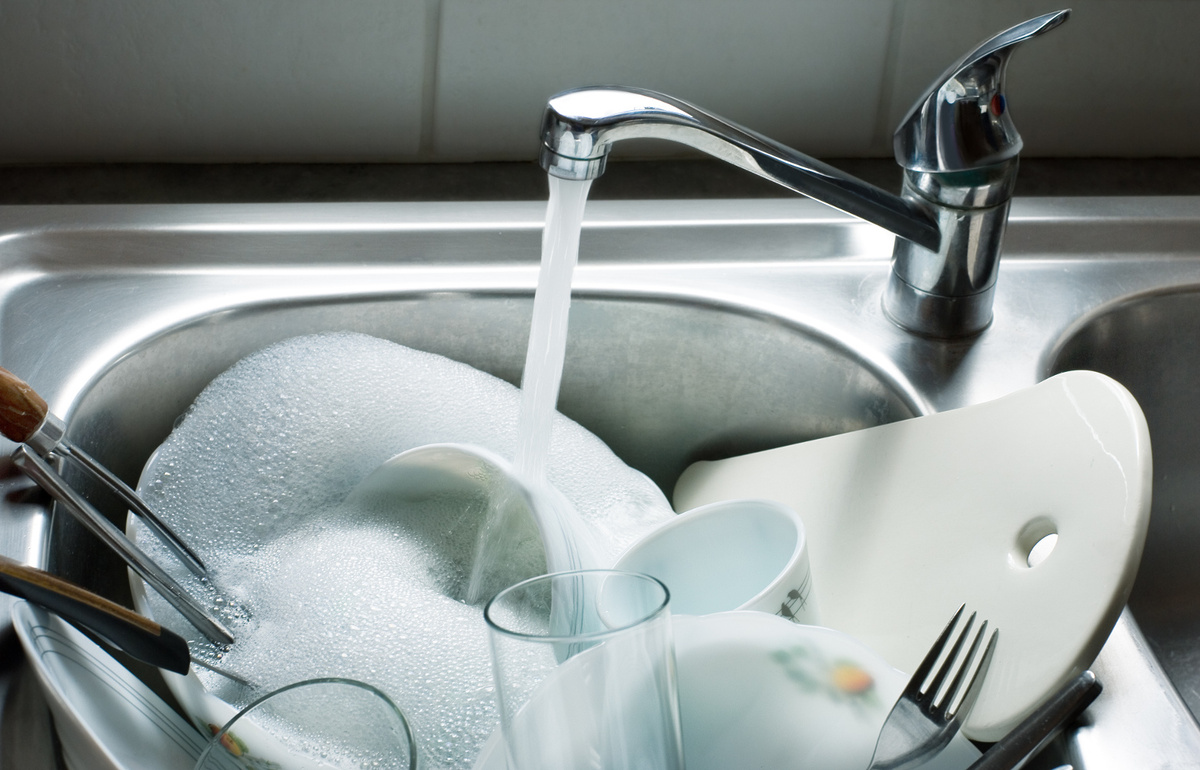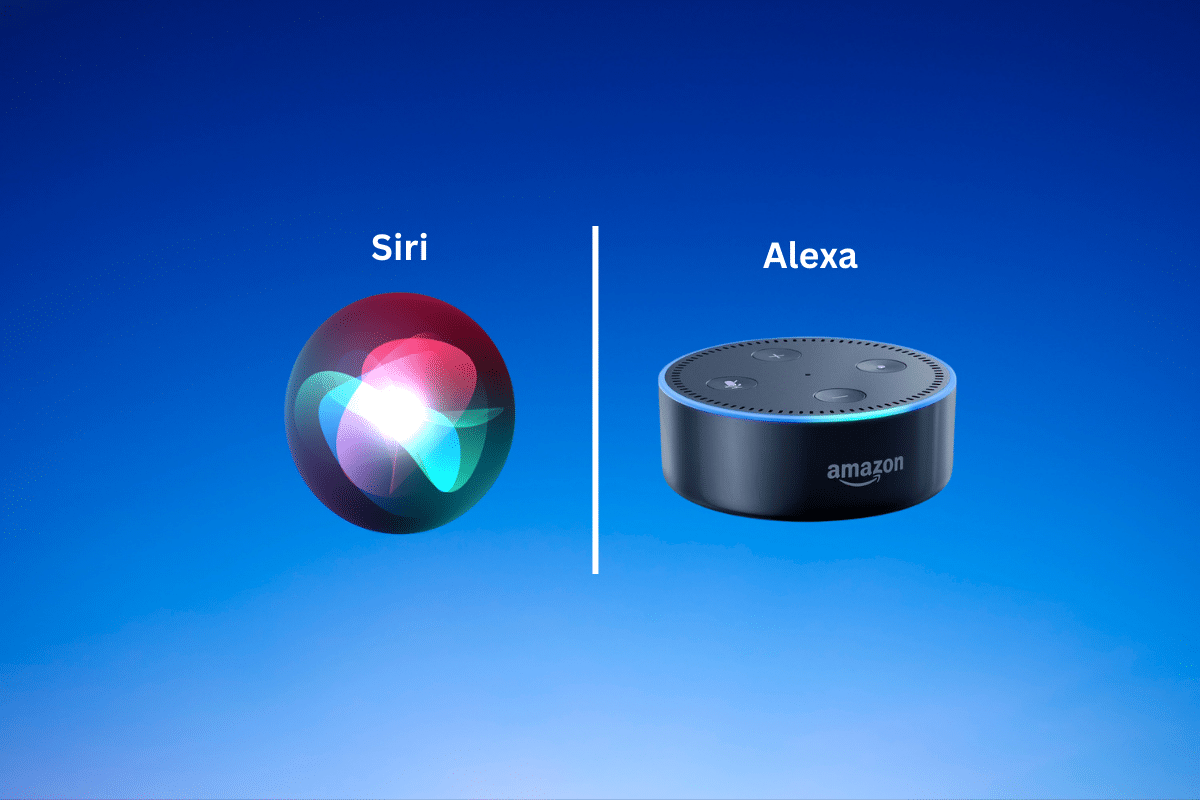Home>Interior Design>Dishwasher Vs Washing By Hand: Which One Is Cheaper?


Interior Design
Dishwasher Vs Washing By Hand: Which One Is Cheaper?
Modified: January 20, 2024
Find out whether using a dishwasher or washing dishes by hand is a more cost-effective option for your interior design needs.
(Many of the links in this article redirect to a specific reviewed product. Your purchase of these products through affiliate links helps to generate commission for Storables.com, at no extra cost. Learn more)
Introduction
When it comes to cleaning dishes, there are two options that most people consider: using a dishwasher or washing by hand. While both methods have their pros and cons, one major factor that often comes into play is the cost. Many people wonder which option is cheaper in the long run. In this article, we will delve into the cost comparison between using a dishwasher and washing dishes by hand.
It’s important to note that the cost comparison may vary depending on several factors such as your location, the price of utilities, the efficiency of your dishwasher, and your personal habits. However, we will provide general insights to help you make an informed decision.
So, let’s delve into the cost breakdown and compare the expenses associated with both options – using a dishwasher and washing dishes by hand.
Key Takeaways:
- Dishwashers may have a higher initial cost, but their energy efficiency and water-saving features can lead to long-term cost savings, making them a worthwhile investment for busy households.
- While handwashing dishes may be more cost-effective upfront, it requires time and physical labor. The choice between a dishwasher and handwashing depends on individual preferences and lifestyle factors.
Read more: Which Is Cheaper, Building Or Buying A House
Cost of a Dishwasher
Before we dive into the specific cost breakdown, let’s first consider the initial purchase cost of a dishwasher. The price of dishwashers can vary greatly depending on the brand, model, and features.
On average, a standard dishwasher can cost anywhere between $300 to $900. However, there are high-end models available in the market that can cost upwards of $1,500. It’s important to consider your budget and the features you require when choosing a dishwasher.
Additionally, you may need to factor in the installation cost if you’re not setting it up yourself. This cost can range from $100 to $200, depending on the complexity of the installation and any additional plumbing or electrical work required.
Furthermore, it’s essential to consider the energy efficiency and associated energy cost of a dishwasher. Energy-efficient dishwashers have become more prevalent, thanks to technological advancements. These models are designed to use less water and electricity, resulting in lower energy expenses over time.
When purchasing a dishwasher, look for the ENERGY STAR label, which indicates that the appliance meets certain energy efficiency guidelines. While energy-efficient dishwashers may have a higher upfront cost, they can save you money on your utility bills in the long run.
In addition to energy efficiency, another cost to consider is water consumption. Traditional dishwashers on average use around 6 to 8 gallons of water per cycle, while newer models can use as little as 3 gallons. It’s important to note that your water bill may see a slight increase with regular dishwasher use.
Lastly, you will need to account for the cost of detergent and regular maintenance. Dishwasher detergents can range in price, with options available from budget-friendly to premium brands. Generally, you can expect to spend around $0.10 to $0.20 per load.
Maintenance costs for a dishwasher are typically minimal but may include periodic cleaning of the filters or replacing any worn-out parts. However, these costs are usually infrequent and can be managed easily.
In summary, when considering the cost of a dishwasher, you need to factor in the initial purchase cost, installation cost (if applicable), energy consumption, water usage, detergent expenses, and occasional maintenance costs. While the initial investment may be higher compared to washing by hand, the long-term cost savings may make it a worthwhile investment.
Initial Purchase Cost
The initial purchase cost is an important consideration when comparing the cost of using a dishwasher versus washing dishes by hand. The price of dishwashers can vary depending on the brand, model, and features you choose.
An entry-level dishwasher can typically range between $300 to $500. These models usually offer basic settings and may not have all the advanced features found in higher-end models. However, they still get the job done effectively.
If you’re looking for more advanced features and a sleek design, mid-range dishwashers can cost between $500 to $800. These models often come with additional options such as adjustable racks, specialized washing cycles, and quieter operation.
For those who prefer top-of-the-line appliances with cutting-edge technology and luxurious features, high-end dishwashers can be priced above $800. These models may offer features like WiFi connectivity, touch screens, advanced water filtration systems, and customizable settings.
It’s important to consider your budget and the specific needs of your household when making a purchasing decision. While high-end models may provide extra convenience and functionality, they can significantly increase the initial cost.
In addition to the purchase price, you may also need to factor in delivery and installation fees. Some retailers offer free delivery, while others may charge a fee depending on your location. If you are not comfortable installing the dishwasher yourself, you may need to hire a professional, which could incur additional installation costs.
Another aspect to consider is the warranty offered by the manufacturer. Some dishwashers come with a standard limited warranty, while others offer extended warranties for an additional cost. These warranties can provide peace of mind and cover any repair or replacement expenses within the specified period.
When budgeting for the initial purchase cost of a dishwasher, it’s important to evaluate your needs, compare prices from different retailers, and factor in any additional expenses such as delivery, installation, and warranty.
While the upfront cost of a dishwasher may be higher compared to washing dishes by hand, it’s important to consider the potential long-term cost savings, convenience, and improved efficiency that a dishwasher can provide.
Energy Efficiency and Cost
Energy efficiency is an important factor to consider when comparing the cost of using a dishwasher versus washing dishes by hand. Dishwashers have become increasingly energy efficient in recent years, which can help reduce your energy consumption and lower utility bills.
When purchasing a dishwasher, look for the ENERGY STAR label. This indicates that the appliance meets certain energy efficiency guidelines set by the Environmental Protection Agency (EPA). ENERGY STAR certified dishwashers are designed to use less water and electricity without compromising on performance.
Energy-efficient dishwashers typically have features like sensor technology, which detects the level of soil and adjusts the water and energy usage accordingly. They also come with advanced insulation and high-performance motors, which contribute to energy savings.
Compared to washing dishes by hand, dishwashers can be more efficient in terms of water and energy usage. On average, a dishwasher uses about 3 to 7 gallons of water per load, depending on the model and settings. This is significantly less water than what is typically used when handwashing dishes.
In terms of energy consumption, dishwashers also have the advantage of using heated water during the wash cycle. The water is heated to a higher temperature than what is typically used for handwashing, ensuring a more thorough and hygienic clean. However, this also means that dishwashers consume electricity to heat the water.
While dishwashers do consume energy during operation, the overall energy savings can be significant. According to the EPA, using an ENERGY STAR certified dishwasher can save you more than 3,500 gallons of water over its lifetime and reduce your energy usage by 10-20% compared to non-certified models.
When it comes to cost, energy-efficient dishwashers can help lower your utility bills. By consuming less water and using energy-saving features, you can potentially save money on both water and electricity expenses.
It’s worth noting that the specific cost savings will depend on factors such as the efficiency rating of the dishwasher, your usage habits, and the cost of utilities in your area. However, investing in an energy-efficient dishwasher can lead to long-term cost savings and a reduced environmental impact.
In summary, energy-efficient dishwashers can help lower your energy consumption, reduce water usage, and potentially save you money on utility bills. While there may be an initial investment in purchasing an energy-efficient dishwasher, the long-term cost savings and environmental benefits can make it a worthwhile choice.
Water Consumption and Cost
Water consumption is another important factor to consider when comparing the cost of using a dishwasher versus washing dishes by hand. While dishwashers require water to operate, the amount used can vary depending on the model and settings.
Average dishwashers can use anywhere from 3 to 7 gallons of water per load. This is significantly less water compared to handwashing, as most people tend to leave the tap running while washing and rinsing dishes.
On the other hand, handwashing dishes can consume a significant amount of water if done inefficiently. According to studies, the average person can use around 20 gallons of water when handwashing a sink full of dishes. This includes the water used for pre-soaking, washing, rinsing, and final rinsing.
When it comes to cost, the price of water can vary depending on your location and the pricing structure set by your water utility company. In some areas, water costs may be tiered, where the more water you consume, the higher the price per gallon becomes.
With a dishwasher, the water consumption is controlled and optimized during the wash cycle. Additionally, modern dishwashers often have sensors that detect the level of soil and adjust the water usage accordingly. This not only saves water but also ensures an efficient and effective cleaning process.
In terms of cost, the price of water can be calculated based on your water utility rates. To estimate the cost of water used by a dishwasher, multiply the number of gallons used per load by the cost per gallon charged by your utility company.
Comparatively, handwashing dishes can lead to higher water consumption, which can result in increased water costs over time. Additionally, the continuous flow of water during handwashing can lead to wastage if not managed efficiently.
However, it’s important to consider that factors such as the efficiency of your dishwasher, the water consumption habits of the individual handwashing, and the cost of water in your area can affect the overall cost comparison.
In summary, dishwashers tend to use less water compared to handwashing dishes. By optimizing the water usage and reducing wastage, dishwashers can provide both cost and water savings. However, individual water utility rates and personal handwashing habits need to be taken into account when calculating the overall cost of water consumption.
Detergent and Maintenance Cost
When comparing the cost of using a dishwasher versus washing dishes by hand, it’s important to consider the expenses related to detergent and maintenance.
Detergent is an essential component when using a dishwasher. The cost of dishwasher detergent can vary depending on the brand, type, and quantity you purchase. Generally, dishwasher detergents range in price from $0.10 to $0.20 per load. It’s worth noting that some high-end or specialty detergents may be priced higher.
Maintenance costs for a dishwasher are usually minimal but may include occasional expenses. One common maintenance task is cleaning the dishwasher filters. Filters tend to accumulate food particles and debris over time, leading to reduced performance. Cleaning the filters regularly ensures optimal efficiency. Additionally, you may need to replace any worn-out parts or components, such as spray arms or door seals. These costs, although infrequent, should be considered when evaluating the overall cost of owning a dishwasher.
When it comes to handwashing dishes, the cost of detergent is also a consideration. However, the amount of detergent required is typically much less compared to using a dishwasher. Depending on the brand and type of dish soap you choose, the cost can vary. Generally, hand dishwashing liquid is more cost-effective, and a small amount can last for several loads of dishes.
In terms of maintenance, handwashing dishes does not require any specific maintenance tasks or additional expenses. However, it’s important to consider that dish soap may need to be replenished regularly, depending on your usage.
In summary, the cost of detergent and maintenance should be factored into the overall cost comparison between using a dishwasher and washing dishes by hand. While dishwasher detergent costs may be slightly higher, hand dishwashing liquid is typically more cost-effective. Maintenance costs for a dishwasher are generally minimal but can vary depending on the specific maintenance tasks required. On the other hand, handwashing dishes may not require any additional maintenance expenses.
Cost of Handwashing
When considering the cost of using a dishwasher versus washing dishes by hand, it’s important to examine the expenses associated with handwashing.
One of the main costs of handwashing is water consumption. The amount of water used can vary depending on personal habits, but on average, handwashing a sink full of dishes can consume around 20 gallons of water. This includes the water used for pre-soaking, washing, rinsing, and final rinsing. It’s important to note that this estimate can vary depending on the duration and efficiency of handwashing.
Another cost to consider is the detergent used for handwashing. Dish soap or hand dishwashing liquid is typically used to create a soapy solution for cleaning dishes. The cost of dish soap can vary depending on the brand and quantity purchased. However, since only a small amount of dish soap is required for each sink full of dishes, the cost per load is relatively low compared to dishwasher detergent.
When handwashing dishes, it’s also important to factor in the time and labor involved. Handwashing can be a time-consuming task, especially if you have a large number of dishes to clean. The amount of time spent will depend on factors such as the number of dishes, the level of dirt and grease, and individual washing techniques. The value of your time should be considered when evaluating the overall cost of handwashing.
In terms of maintenance, handwashing dishes does not require any specific maintenance tasks or additional expenses. However, it’s worth noting that handwashing can result in increased wear and tear on your hands, which may require additional care and moisturizers.
When comparing the cost of handwashing to using a dishwasher, it’s important to consider the factors mentioned above. While handwashing dishes can be more economical in terms of water usage and detergent costs, it can be more time-consuming. Additionally, the cost of your time and potential hand care products should be taken into account.
Ultimately, the cost of handwashing dishes will vary depending on individual habits, the number of dishes to wash, and personal preferences. It’s important to weigh the cost factors alongside convenience, time savings, and the overall efficiency of using a dishwasher.
Water Consumption and Cost
One of the factors to consider when comparing the cost of using a dishwasher versus washing dishes by hand is water consumption. Both methods require water, but the amount used can vary significantly.
When using a dishwasher, the water consumption is controlled and optimized during the wash cycle. Energy-efficient dishwashers typically use around 3 to 7 gallons of water per load. This is significantly less water compared to handwashing, as dishwashers use precise amounts of water based on the selected cycle and the number of dishes being washed.
In contrast, handwashing dishes can lead to higher water consumption. It’s common for people to leave the tap running continuously while washing and rinsing dishes. This can result in a considerable amount of water being wasted. Additionally, some individuals may use more water by filling up the sink or a basin to wash dishes, which can lead to higher water usage compared to using a dishwasher.
When it comes to cost, the price of water can vary depending on your location and the pricing structure set by your water utility company. In some areas, water costs may be tiered, where the more water you consume, the higher the price per gallon becomes.
To estimate the cost of water used by a dishwasher, multiply the number of gallons used per load by the cost per gallon charged by your utility company. This will give you an approximate cost of water consumption associated with running the dishwasher.
For handwashing dishes, calculating the exact water usage and associated cost can be more challenging, as it depends on personal habits and the efficiency of the individual. However, it’s generally safe to assume that handwashing dishes can lead to higher water consumption and potentially increased water costs over time.
It’s worth noting that while using a dishwasher may require more water per load compared to handwashing, the overall efficiency and water savings can be substantial. Dishwashers are designed to use water efficiently, and their controlled usage can help reduce wastage.
Ultimately, when evaluating the cost of water consumption, it’s important to consider factors such as the efficiency of your dishwasher, your personal habits, the cost of water in your area, and any tiered pricing structure set by your water utility company. By taking these factors into account, you can make a more accurate assessment of the water consumption and cost associated with both dishwasher and handwashing methods.
Detergent and Maintenance Cost
When comparing the cost of using a dishwasher versus washing dishes by hand, it’s important to consider the expenses related to detergent and maintenance.
Dishwasher detergent is specifically formulated for use in dishwashers and is essential for effective cleaning. The cost of dishwasher detergent can vary depending on the brand, type, and quantity you purchase. Generally, dishwasher detergents range in price from $0.10 to $0.20 per load. It’s worth noting that some high-end or specialty detergents may be priced higher.
When using a dishwasher, the amount of detergent required is typically less compared to handwashing. This is because dishwashers have specialized compartments or dispensers that release the detergent during the wash cycle. This ensures that the detergent is used efficiently and effectively, reducing waste and costs.
In contrast, when handwashing dishes, you will need to use dish soap or hand dishwashing liquid. The cost of dish soap can vary depending on the brand and quantity purchased. However, since only a small amount of dish soap is required for each sink full of dishes, the cost per load is relatively low compared to dishwasher detergent.
Maintenance costs for a dishwasher are usually minimal but may include occasional expenses. One common maintenance task is cleaning the dishwasher filters. Filters tend to accumulate food particles and debris over time, leading to reduced performance. Cleaning the filters regularly ensures optimal efficiency and can help extend the lifespan of your dishwasher.
Additionally, you may need to replace any worn-out parts or components in your dishwasher, such as spray arms or door seals. The frequency and cost of these replacements can vary depending on the age and condition of your dishwasher. However, it’s important to note that regular maintenance and timely replacements can help prevent more expensive repairs in the future.
When it comes to handwashing dishes, there are typically no specific maintenance costs. However, it’s important to consider that handwashing can be harsh on your hands, especially if you frequently wash dishes. Investing in moisturizing hand soaps or hand creams can help keep your hands hydrated and prevent drying or cracking.
In summary, when it comes to detergent and maintenance costs, using a dishwasher can incur expenses for dishwasher detergent and occasional maintenance tasks. However, the efficient use of detergent and the minimal maintenance requirements can help keep these costs relatively low. On the other hand, handwashing dishes requires the use of dish soap, but there are usually no specific maintenance costs. The overall cost comparison will depend on factors such as the type of detergent used, the frequency of maintenance tasks, and individual preferences.
Time and Labor Cost
When comparing the cost of using a dishwasher versus washing dishes by hand, it’s important to consider the time and labor involved in each method.
Using a dishwasher can save you time and effort in washing dishes. Once you load the dishwasher and start the cycle, you can step away and attend to other tasks or relax. This can be particularly beneficial when you have a large number of dishes to clean or when you’re multitasking. The time spent actively working on washing dishes is significantly reduced with a dishwasher.
In contrast, handwashing dishes can be more time-consuming. You need to manually scrub each dish, utensil, and glass by hand, rinse them thoroughly, and then dry them. If you have a sizable load of dishes, this process can take a considerable amount of time, particularly if you’re working alone. It requires physical effort and can be tiring, especially after a long day.
The time spent on handwashing dishes can vary depending on factors such as the number of dishes, the level of dirt and grease, and individual washing techniques. However, it’s generally acknowledged that using a dishwasher can save you a significant amount of time and minimize physical labor.
When considering the cost of time and labor, it’s essential to evaluate the value you place on your time. If you have a busy schedule or have other tasks and responsibilities to attend to, then using a dishwasher can be a more efficient use of your time. It allows you to allocate your time to other important activities or simply enjoy some well-deserved relaxation.
While handwashing dishes may require more time and physical effort, some individuals find it therapeutic and enjoy the meditative aspect of the task. It can also be an opportunity for family members or roommates to bond and engage in conversation while working together in the kitchen.
Ultimately, evaluating the time and labor cost depends on your personal circumstances, preferences, and time availability. If you prioritize convenience and time-saving, then using a dishwasher may be the more cost-effective option. However, if you find enjoyment or value in the process of handwashing dishes, then the time and labor involved may be viewed as a more worthwhile investment.
In summary, using a dishwasher can save you time and physical labor compared to handwashing dishes. It allows you to focus on other tasks or relax while the dishwasher does the work. However, some individuals may find enjoyment or value in the process of handwashing dishes. The cost of time and labor will depend on personal preferences and circumstances.
Comparing the Costs
Now that we have examined the various cost factors associated with using a dishwasher versus washing dishes by hand, let’s compare the overall costs of both methods.
When considering the cost of using a dishwasher, there are several factors to consider. The initial purchase cost of a dishwasher can vary depending on the brand, model, and features you choose. Additionally, there may be delivery and installation expenses if you opt for professional assistance.
Energy efficiency and water consumption are other important cost considerations for dishwashers. Energy-efficient models can help lower your energy consumption and save you money on utility bills in the long run. Dishwashers also use less water compared to handwashing, further contributing to potential water savings and reduced costs.
Detergent costs for dishwashers are relatively low, depending on the brand and type of detergent used. Occasional maintenance costs, such as cleaning the filters or replacing worn-out parts, may also need to be factored in but are generally minimal.
On the other hand, handwashing dishes can be a more economical option in terms of water consumption and detergent costs. However, it can be time-consuming and require physical labor. The cost of your time should be considered when evaluating the overall cost of handwashing.
When comparing the costs, it’s important to consider the long-term savings and convenience that a dishwasher can provide. While the initial investment may be higher, the energy efficiency, water savings, and time-saving benefits can make it a worthwhile investment over time.
In terms of handwashing, the cost savings mostly include reduced water consumption and lower detergent costs. However, the tradeoff is the time and effort spent in handwashing. It’s essential to assess the value you place on your time and consider if the cost savings outweigh the convenience and efficiency of using a dishwasher.
It’s important to note that the specific cost comparison will vary depending on factors such as your location, the price of utilities, the efficiency of the dishwasher, and your personal habits. Additionally, individual preferences, environmental considerations, and lifestyle factors may also come into play when making a decision.
In summary, when comparing the costs of using a dishwasher versus washing dishes by hand, it’s important to weigh the initial purchase cost, energy efficiency, water consumption, detergent expenses, time, and labor. While there may be an initial investment with a dishwasher, the long-term cost savings, convenience, and potential environmental benefits can make it a cost-effective choice for many households.
Factors to Consider
When deciding whether to use a dishwasher or wash dishes by hand, there are several factors to consider. These factors can help determine which method is the most suitable for your specific needs and circumstances.
1. Lifestyle and Schedule: Consider your daily routine and lifestyle. If you have a busy schedule with limited time for household tasks, using a dishwasher can save you valuable time and energy. However, if you have a more leisurely lifestyle or enjoy the process of handwashing, you may prefer to wash dishes by hand.
2. Number of Dishes: Take into account the number of dishes you typically need to wash. If you live alone or have a small household, handwashing may be manageable. However, for larger families or frequent entertainers, a dishwasher can efficiently handle larger loads of dishes.
3. Energy and Water Efficiency: Consider your environmental impact and energy-saving goals. Dishwashers with energy-efficient features and water-saving capabilities can help minimize your carbon footprint and reduce utility bills. Handwashing dishes can be more water-efficient if done consciously and without excessive water usage.
4. Budget: Evaluate your budget and financial considerations. Dishwashers require an initial investment, including the purchase cost and potential installation expenses. Handwashing can be more cost-effective in terms of upfront costs since it requires minimal equipment. However, the long-term cost savings, convenience, and efficiency of a dishwasher may outweigh the initial investment.
5. Cleaning Standards: Assess your personal cleaning standards and expectations. Dishwashers, when used correctly and with high-quality detergent, can provide efficient and thorough cleaning. Handwashing allows for more precise control over each individual dish, ensuring a meticulous clean if desired.
6. Water Quality: Consider the quality of your tap water. If your water is hard or contains excessive minerals, using a dishwasher with appropriate water filters and softeners can help achieve better results. Handwashing may require additional steps to manage water quality, such as using filtered water or vinegar rinses.
7. Space and Kitchen Layout: Evaluate the available space and kitchen layout in your home. Dishwashers require dedicated space, including plumbing and electrical connections. Ensure that you have sufficient space and the necessary infrastructure to accommodate a dishwasher. Handwashing dishes can be done in any sink, making it suitable for kitchens with limited space.
8. Personal Preference: Ultimately, personal preference plays a key role in the decision-making process. Some individuals may simply prefer the convenience and ease of using a dishwasher, while others may enjoy the process and control of handwashing dishes. Consider your own preferences and what brings you satisfaction in the kitchen.
By carefully considering these factors, you can make an informed decision about whether to use a dishwasher or wash dishes by hand. Remember that there is no one-size-fits-all answer, and the best choice depends on your unique circumstances and preferences.
Conclusion
In conclusion, when deciding between using a dishwasher or washing dishes by hand, there are several factors to take into account. The costs associated with each method, including the initial purchase, energy efficiency, water consumption, detergent, time, and labor, should be considered in order to make an informed decision.
Dishwashers offer the convenience of saving time and effort, especially for households with larger numbers of dishes or busy schedules. They also have the potential to save on energy and water costs, particularly with energy-efficient models. Although the initial purchase cost may be higher, the long-term savings and efficiency of a dishwasher can make it a worthwhile investment.
On the other hand, handwashing dishes can be more cost-effective in terms of upfront expenses and water consumption, especially when done consciously and efficiently. However, it can be time-consuming and labor-intensive, which may not be suitable for everyone, particularly those with demanding routines or physical limitations.
In making a decision, it’s important to consider individual preferences, lifestyle, environmental goals, and financial constraints. Factors such as the number of dishes, water quality, kitchen layout, and personal cleaning standards should also be taken into account.
Ultimately, the best choice depends on weighing the cost factors, convenience, efficiency, and personal satisfaction. Some individuals may find joy and satisfaction in handwashing dishes, while others may appreciate the time and effort saved by using a dishwasher.
By carefully considering the factors discussed in this article, you can make an informed decision that aligns with your needs and priorities. Whether you choose the convenience of a dishwasher or the simplicity of handwashing, the goal is to have clean dishes while optimizing cost-efficiency and personal comfort in the process.
Remember, both methods have their merits, and there is no right or wrong choice. The decision ultimately rests with you and what suits your unique circumstances and preferences. So, consider the factors, assess your needs, and make the choice that works best for you and your household.
Frequently Asked Questions about Dishwasher Vs Washing By Hand: Which One Is Cheaper?
Was this page helpful?
At Storables.com, we guarantee accurate and reliable information. Our content, validated by Expert Board Contributors, is crafted following stringent Editorial Policies. We're committed to providing you with well-researched, expert-backed insights for all your informational needs.














0 thoughts on “Dishwasher Vs Washing By Hand: Which One Is Cheaper?”